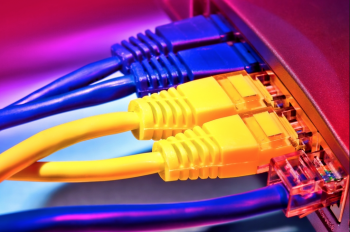
Is TPG Value.Able?
As Roger discussed last week, TPG Telecom Limited (ASX: TPM) has made a bid for iiNet Limited (ASX: IIN) which as a result made its shareholders (including us) very happy.
We now ask post transaction, what could TPG be worth?
Firstly, it is worth noting that the Australian Competition and Consumer Commission (ACCC) still has to approve the transaction and there is definitely a non-zero probability that they’ll decline. As to what this probability is, I have no idea.
It’s tempting to simply add up the forecast revenues of iiNet and TPG, apply TPG’s net profit margin and use a discounted cash flow model to value the stock – but we need to go a bit deeper. As with all acquisitions, the word “synergies” becomes a headline feature and investors are required to assess just how real (or imaginary) these synergies will be.
With a little math, we can determine that by applying the above exercise the implied synergies are a little over $100m. It is important to note that the market is currently expecting synergies of $50m-$100m, but this is working off limited levels of information. What’s difficult is working out where this $100m will come from in terms of real business operations.
For example, how much can be saved by the new iiNet when it can use TPG’s array of telecommunications infrastructure rather than pay third parties? Further, how will the networks cope with almost a million extra users requiring bandwidth capacity?
How about in terms of operating expenditures? Millions could be saved by offshoring call center jobs to the Philippines – but would this comprise iiNet’s leading levels of customer service? What you may save in terms of personnel expenditure may leave you should customer churn rise.
Synergies in the order of $200m could see the firm’s value rise to over $10; however whether this is likely is up for debate. Information as it stands is too scarce on this issue.
Scott Shuttleworth is an analyst at Montgomery Investment Management. To invest with Montgomery, find out more.
This post was contributed by a representative of Montgomery Investment Management Pty Limited (AFSL No. 354564). The principal purpose of this post is to provide factual information and not provide financial product advice. Additionally, the information provided is not intended to provide any recommendation or opinion about any financial product. Any commentary and statements of opinion however may contain general advice only that is prepared without taking into account your personal objectives, financial circumstances or needs. Because of this, before acting on any of the information provided, you should always consider its appropriateness in light of your personal objectives, financial circumstances and needs and should consider seeking independent advice from a financial advisor if necessary before making any decisions. This post specifically excludes personal advice.
INVEST WITH MONTGOMERY
An article in The Age this morning quotes BT Investment Management as calling the offer price for iiNet too low…
“We are staggered the board and its advisers doesn’t see this and didn’t argue stronger for a scrip- based alternative. To have dealt these strategic assets for a bog standard 25 per cent premium is absurd.”
Does Montgomery Investment Management agree with this view?
Hi Joe,
there was always the possibility that the bid would be thwarted and the share prices traded above the bid at the time it was made public. We sold iiNet. I remember seeing opinions about Qantas being worth more than the $5.70 bid that was made at the time too.
It is amazing that promotion/discussion of synergies is always provided in instances like this, yet disincentives are never given fair airing or are dismissed altogether. Even after experiences of amalgamating (not merging) two companies e.g. the largest ever ‘merger’ of the two giants HP & Compaq. Similarities? Until this announcement TPG & IiNet have been competitors (like HP & Compaq) with a young, enthusiastic and workforce loyal to the cause. In the main saw their respective companies as better than the other guys. Now expected to work together, where medium term may mean those ‘synergies’ at best equate to loss of ‘ideal’ and at worst job loss. There is a real danger both TPG & IiNet will loose their UVP and positives their uniqueness has so far engendered and the energy (value) it generates.